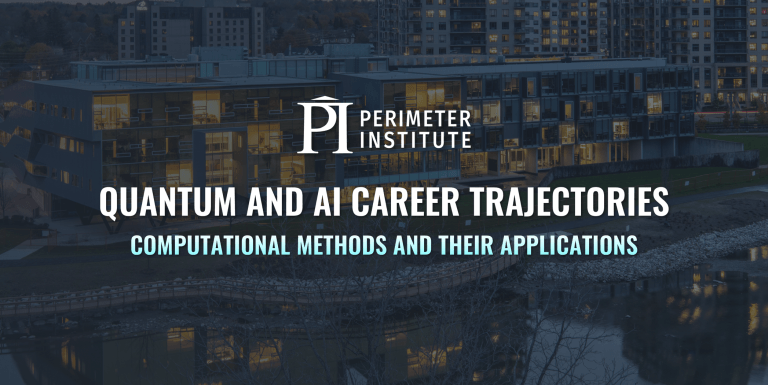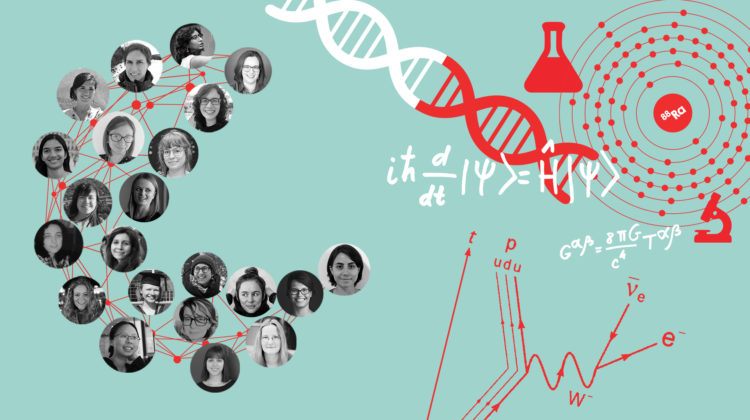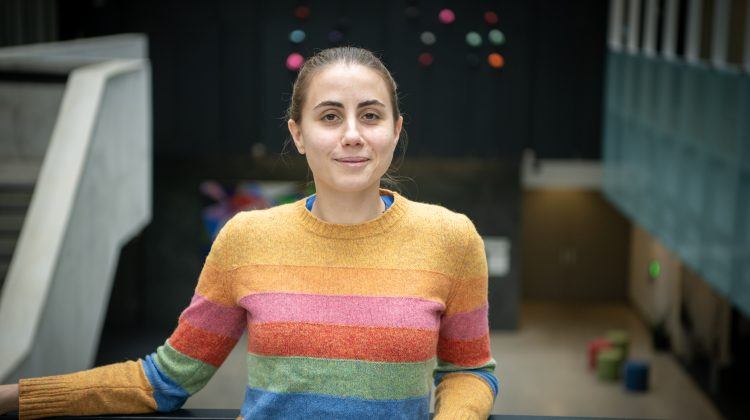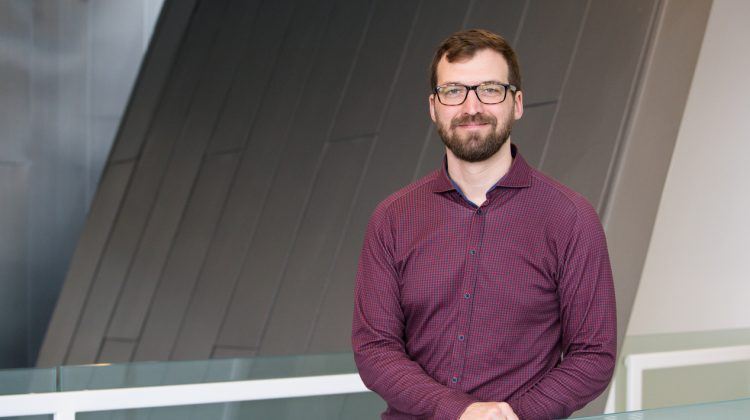Quantum and AI Career Trajectories mini-course connects students with industry experts
Making the leap from academia to industry is hard, but mentorship and networking can make all the difference. Last week at Perimeter, students got their chance, and they are ready to help build Canada’s quantum future.

Graduate students studying everything from quantum physics to machine learning had an opportunity last week to find out how to turn their skill set into a career. As part of a Quantum and AI Career Trajectories mini-course at Perimeter Institute, they met face to face with quantum start-up founders and industry leaders.
The promise of quantum and AI technologies is clear: they will shape the industry of tomorrow. And they have already begun, with a growing number of start-ups in Canada and worldwide offering clients a quantum advantage that classical computing can’t compete with, and AI tools that are changing the landscape of the workforce.
Canada’s quantum industry is hungry for talented, skilled experts. Physics graduate students at Perimeter and Canadian universities are ready and capable. But it isn’t always easy to turn academic expertise into a career-defining opportunity.

Finding a better quantum algorithm, for example, might result in a peer-reviewed publication and represent a clear advance of the science, but if there is no business case behind it – if it doesn’t fill a need or solve a problem – then it won’t be a successful product in the realm of industry.
That is the kind of challenge this mini-course was designed to help students with: turning theory and experiment into application.
“Since I started working at Perimeter in 2017, I’ve seen a huge increase in opportunities for graduate students and postdocs within the quantum computing industry, but navigating the academia-to-industry transition requires unique skills,” says Lauren Hayward, teaching faculty member at Perimeter and the organizer of the mini-course.
Hayward has been working with Perimeter’s Career Trajectories team to help young theoretical physicists explore quantum career paths.
“Participants should leave the Quantum and AI Career Trajectories mini-course with both practical skills in computational methods for quantum industry applications, as well as new networking connections,” says Hayward.
Throughout the week-long course, Perimeter researcher Roger Melko and University of Waterloo scientist Mohamed Hibat Allah gave lessons on generative modelling, while Martin Ganahl of SandboxAQ taught participants about tensor networks and quantum algorithms. Both are techniques that, via machine learning, can solve complex real-world problems.
For example, the founder of quantum start-up ForeQast, Aida Ahmadzadegan, who also spoke to the students, uses quantum algorithms to help her clients find the optimal route for last-mile delivery.
Joan Arrow, a PhD student at the University of Waterloo’s Institute for Quantum Computing, felt inspired by the possibilities. “Getting to hear from particularly female CEOs about how they’ve started their own companies and their journey into that field has been really valuable for me, because I also have entrepreneurial aspirations,” she said.
The course also featured hands-on coding workshops and talks from speakers who have transitioned from academia to quantum industry.
Perhaps the highlight of the week was the opportunity to network with representatives from successful quantum companies, including Xanadu, 1QBit, and SandboxAQ.
With all the promise of quantum and AI technologies, it is easy to get caught up in the futurist hype about them – some of which is warranted – but quantum experts also need to think deeply about the social changes these technologies might bring.
Part of the mini-course, therefore, was dedicated to quantum ethics, helping students understand the potential ramifications of quantum technologies. Arrow, who is CEO of the Quantum Ethics Project, founded in 2021, said that the core motivation of the organization is to enable real conversations about the social implications of quantum technology.
“We treat quantum advantage as a universally positive thing,” she said. “But when we think about these technologies in economic and social terms, we start to wonder: Quantum advantage for whom? Who is really going to benefit from the technology? And if people are going to be harmed, who are they?”
These are conversations that need to be had, and taken seriously, alongside the business and industry value that quantum and AI technology create.
As the mini-course drew to a close, the students were left with a lot to think about, including the future of quantum and AI technology in Canada, and their own place in that future.
Making the leap to quantum industry is full of opportunities and responsibilities. Participants came away more prepared than ever to deal with both.
The companies and not-for-profit organizations represented included 1QBit, Agnostiq, Amazon Web Services, ForeQast, IBM Quantum, Nord Quantique, Quantum Valley Ideas Lab, SandboxAQ, Xanadu, yiyaniQ, and ZebraKet.
























































































